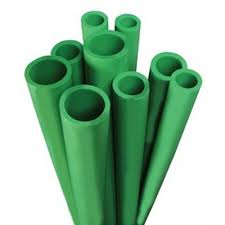Oct . 10, 2024 05:26 Back to list
Understanding the Benefits and Applications of CPVC Pipes in Modern Construction
The Rise of CPVC Pipes A Modern Solution for Plumbing Needs
In the world of plumbing, the materials used play a critical role in the longevity and efficiency of water systems. One of the most prominent innovations in this field is Chlorinated Polyvinyl Chloride, commonly known as CPVC. This thermoplastic material has gained popularity in recent years due to its unique properties and versatile applications, making it an ideal choice for both residential and commercial plumbing systems.
What is CPVC?
CPVC is a type of plastic that is specifically designed for high-temperature applications. It is derived from PVC (Polyvinyl Chloride) but has been chlorinated to enhance its thermal stability and chemical resistance. This modification enables CPVC pipes to handle temperatures up to 200°F (93°C), making them suitable for hot and cold water distribution systems. Unlike traditional metal pipes, CPVC does not corrode, rust, or scale, significantly extending its lifespan and reducing maintenance costs.
Advantages of CPVC Pipes
1. Resistance to Corrosion One of the standout features of CPVC pipes is their resistance to corrosion. Unlike metal pipes that can deteriorate over time due to exposure to minerals and chemicals in water, CPVC remains unaffected, ensuring a clean and safe water supply.
2. Thermal Stability As mentioned earlier, CPVC can withstand high temperatures without deforming or losing structural integrity. This makes it an excellent option for hot water systems, providing reliable performance in scenarios where other materials might fail.
cpvc pipes

3. Ease of Installation CPVC pipes are lightweight and easy to handle, which simplifies the installation process. They can be easily cut and joined using solvent cement, reducing labor costs and installation time. This is particularly beneficial in large construction projects where efficiency is key.
4. Cost-Effective Although the initial cost of CPVC might be higher than some alternatives, the long-term savings are significant. The durability and low maintenance requirements of CPVC pipes can lead to substantial savings over time in both repair and replacement costs.
5. Fire Resistance CPVC is inherently fire-resistant, which is an important consideration for any building. It can help inhibit the spread of flames, providing extra safety to homeowners and building occupants.
Applications of CPVC Pipes
The versatility of CPVC pipes makes them suitable for a wide range of applications. They are commonly used in residential plumbing, including hot and cold water lines, as well as in commercial buildings for industrial process piping and fire suppression systems. Additionally, CPVC is also utilized in swimming pool plumbing, irrigation systems, and even in wastewater management.
Conclusion
As the demand for efficient and durable plumbing solutions continues to grow, CPVC pipes stand out as a reliable choice for modern construction and renovation projects. Their resistance to corrosion, thermal stability, ease of installation, cost-effectiveness, and fire resistance make them a superior alternative to traditional materials. As we look ahead, it's clear that CPVC will play a significant role in the future of plumbing, ensuring that our water systems remain safe, efficient, and sustainable. Whether you are a homeowner planning a renovation or a contractor working on a large-scale project, considering CPVC pipes can lead to better outcomes and greater peace of mind.
-
High-Quality PVC Borehole Pipes Durable & Versatile Pipe Solutions
NewsJul.08,2025
-
High-Quality PVC Perforated Pipes for Efficient Drainage Leading Manufacturers & Factories
NewsJul.08,2025
-
High-Quality PVC Borehole Pipes Durable Pipe Solutions by Leading Manufacturer
NewsJul.08,2025
-
High-Quality PVC Borehole Pipes Reliable PVC Pipe Manufacturer Solutions
NewsJul.07,2025
-
High-Quality UPVC Drain Pipes Durable HDPE & Drain Pipe Solutions
NewsJul.07,2025
-
High-Quality Conduit Pipes & HDPE Conduit Fittings Manufacturer Reliable Factory Supply
NewsJul.06,2025

